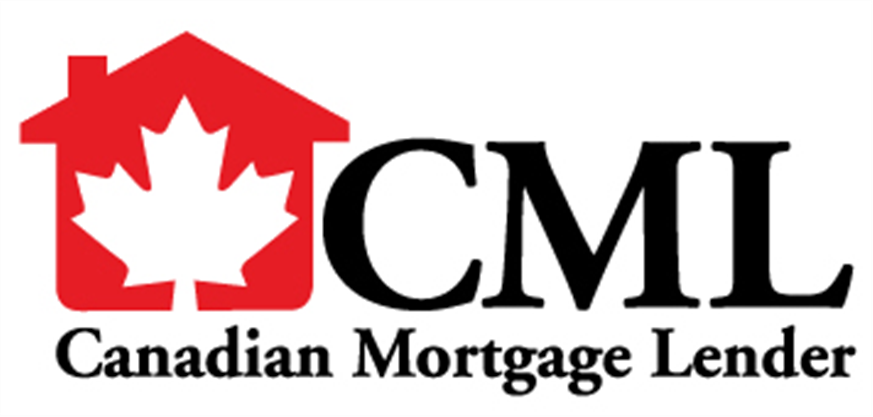
Chris Stewart
BROWSE
PARTNERSTypes of Mortgages in Canada
7/27/2023
Canadians have several types of mortgages available to them when buying a home, refinancing, switching/transferring or even pulling equity. Here is a list and explanation to assist you with knowing what they are and distinguishing their differences. Many of these mortgages can be combined to achieve your financial goals, short term and long term.
Open Mortgage
A mortgage that permits repayment of the principal amount at any time, without a penalty. A borrower is able to pay out this type of mortgage at any time without any penalties being charged.
Closed Mortgage
A mortgage that has restrictions and limitations that prevent its early payout with incurring penalties. A borrower is unable to pay it out early, refinance or renegotiate the mortgage terms without being charged a penalty of some sort.
High Ratio Mortgage (HR)
A mortgage that covers more than 80% of the home's purchase price. If a borrower is buying a home with a total down payment of less than 20% of the purchase price, the mortgage is deemed to be a High Ratio. In Canada, all High Ratio Mortgages MUST be insured by a Default Mortgage Insurance Company. There are three to choose from in Canada: Canada Mortgage & Housing Corporation (CMHC), Sagen and Canada Guaranty. There is a premium charged to the borrower based on the percentage borrowed against the home. The premium can either be paid upfront by the borrower or added to the mortgage (most common). As an example, if a borrower is paying 5% down towards the purchase price, the premium charged would be 4% of the 95% being financed.
Conventional Mortgage
A mortgage that covers 80% or less of the home's purchase price or value. If the borrower is buying a home and pays a total of 20% down payment or more, the mortgage is deemed to be Conventional and in most circumstances, will not require a mortgage default insurance premium to be paid like a High Ratio Mortgage. There are actually two types of Conventional Mortgages in Canada. The first one is a Conventional Insurable. This means that the conventional mortgage meets the insurer's guidelines such as CMHC and could be insured. In many cases, these mortgage types are actually insured by the Lender though the borrower is not charged the premium. The second type is a Conventional Uninsurable. This means that the conventional mortgage does not meet the insurer's guidelines and it can not be insured so is deemed by the Lender to be of greater risk and is more difficult to sell as an asset so it generally comes with a slightly higher interest rate. One example of a conventional uninsurable mortgage would be one with an extended amortization. The maximum amortization accepted by an insurer in Canada is 25 years.
Fixed Mortgage
A mortgage that has an interest rate that is set for a certain period of time and will not change during that time period. Generally, fixed terms of 1 to 5, 7 & 10 years are available for a fixed mortgage. A fixed rate mortgage offers a borrower rate stability, payment budgeting and overall predictability as the rate and payments will not change throughout the specific term taken by the borrower. This can protect a borrower from a rate increase during the term if rates are increasing but can hinder the borrower from a lower rate if they are decreasing during the fixed term. The borrower can then make new choices when the mortgage matures at the end of the fixed term.
Variable Mortgage
A mortgage that has an interest rate that fluctuates during the term of the mortgage. The interest rate is generally based on the Prime Lending Rate with an adjustment up or down (generally down). As an example, a VRM rate could be listed as Prime - 1%. If Prime is 7.20% than the mortgage's interest rate would be 6.20%. If the Prime Rate increases or decreases during the term of the mortgage, than the mortgage rate will change causing a positive or negative affect on the principal being paid moving forward. There are two types of variable mortgages. The first one is a Variable Rate Mortgage (VRM) which has a static payment like a fixed-rate mortgage but the interest rate changes as Prime changes. The second one is an Adjustable Rate Mortgage (ARM) that has a floating payment that rises and falls based on the movement of prime. When prime moves, the payment will generally be adjusted at the end of the full payment period. Usually the payment after the upcoming change).
Convertible Mortgage
A mortgage that generally provides the same benefits as a closed mortgage but can be converted to a longer term at anytime without any pre-payment penalties being charged.
Prime Mortgage
A mortgage that is underwritten by a mortgage lender who generally discounts interest rates and underwrites credit for those borrowers who meet higher minimal criteria such as credit history, credit scores, income and affordability ratios. Lender offering these type of mortgages are Banks, Credit Unions, Insurance Companies and Mono-Lines within the Mortgage Broker Channel. Prime Mortgages can be High Ratio or Conventional.
Alternative Mortgages
A mortgage that does not fit the criteria of a prime lender due to unique or low income qualifying, credit challenges or low credit scores, affordability ratios beyond the prime lender maximums or due to other types of application challenges. Alternative Mortgage must be conventional.
Private Mortgages
A mortgage that does not fit the required criteria of a prime or alternative lender. It is an agreement between the borrower and either a Mortgage Investment Corp. or Private Investor. A private mortgage provides much less qualifying criteria than other type of mortgages so risk is deemed much higher and will charge additional fees such as lender, investor and broker fees. Interest Rates will be much higher than other mortgage types and are normally structured with a 1 year term and may even only require interest payments to be made. Private Mortgages can also provide second mortgage financing as another alternative. They are focused more on the subject property than the other application attributes. Private mortgages are generally a conventional mortgage but at times, they may be willing to venture over the 80% Loan-to-Value ratio.
Combination Mortgage
A type of mortgage that is comprised of two separate mortgage components on the same property. The first component is generally a regular fixed or variable mortgage with standard principal & interest payments based on a set frequency such as monthly. The second component is generally a secured line of credit that is revolving based on a variable rate and is deemed to be re-advanceable. This means that this type of mortgage is registered as a Collateral Mortgage. It is like having a Fixed Mortgage or Variable Mortgage combined with a HELOC. In most cases, as the first component balance falls, the limit for the line of credit will increase until the limit has reached the allowable maximum under Canadian Legislation.
Home Equity Line of Credit (HELOC)
A secured form of credit where the institution uses your primary residence as security. The account is set up as a revolving line of credit with a limit that can be much larger than an unsecured line of credit. Interest is a variable rate based on the Prime Rate and quite often the required monthly payments may only be interest payments. A HELOC can be set up as either a first or second charge. There is Canadian Legislation that caps the maximum limits within a conventional mortgage structure.
Collateral Mortgage
A mortgage that is fully or contains a component that is re-advanceable. This means that the re-advanceable portion can be paid down and used again within the maximum limit of that portion. These type of mortgages are registered slightly differently to a standard mortgage and can be more complex and costly to switch to a different lender when the non re-advanceable portion matures.
Reverse Mortgages
A mortgage that allows a borrower to obtain money from their home equity up to a maximum of 55% Loan-to-Value without having to sell the property. These mortgages come with specific required criteria such as all borrowers having to be 55 years old or older. Interest is charged on the amount borrowed but mortgage payments are not required. Available funds for borrowing are determined by the age of the applicants, location of the property, its value among other attributes. Credit history is generally not deemed to be an important attribute.
Bridge Financing Mortgages
A short-term loan designed to bridge the gap between the property an applicant is selling and the property the applicant is buying when the closing of the purchase is before the closing of the sale and funds from the sale are being used to buy the new property. Mortgage Lenders who offer this program generally charge a floating rate based on prime (ie. Prime + 2%) and will cap the term they allow (ie. 30 days) Not all lenders offer this program so it is important to let your mortgage professional know this is required right up front.
Second Mortgages
A mortgage that is financed while an existing first mortgage remains in place and both are all for the same property. A second charge will be placed on the property’s title and they come with a higher rate, maximum Loan-to-Value limits and additional fees charged within the transaction. This enables a borrower to pull property equity (cash) without affecting the existing first mortgage that may have a low rate or produce penalties if refinanced within the existing term.
Commercial Mortgages
A type of loan that is granted to a business to purchase a commercial property. The borrower is generally a business and not an individual and the business may be a partnership, limited company or incorporated. These type of mortgage are much different than a residential Mortgage and it is recommended that the borrowing company use an experienced commercial lender or mortgage professional for these types of transactions as they are more often than not, much more complex than a residential mortgage transaction.
E&O




























